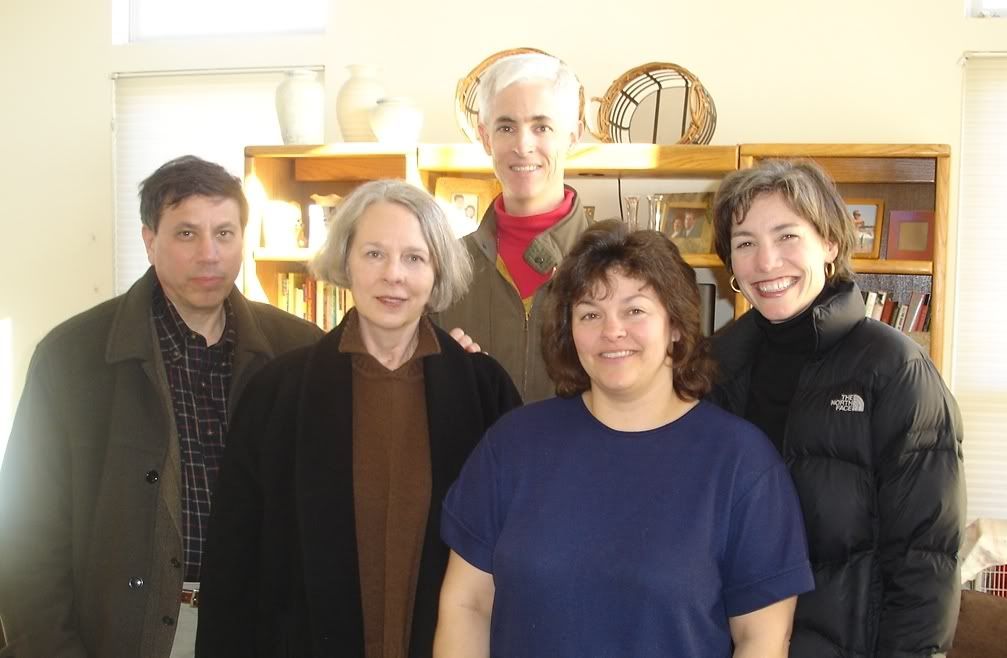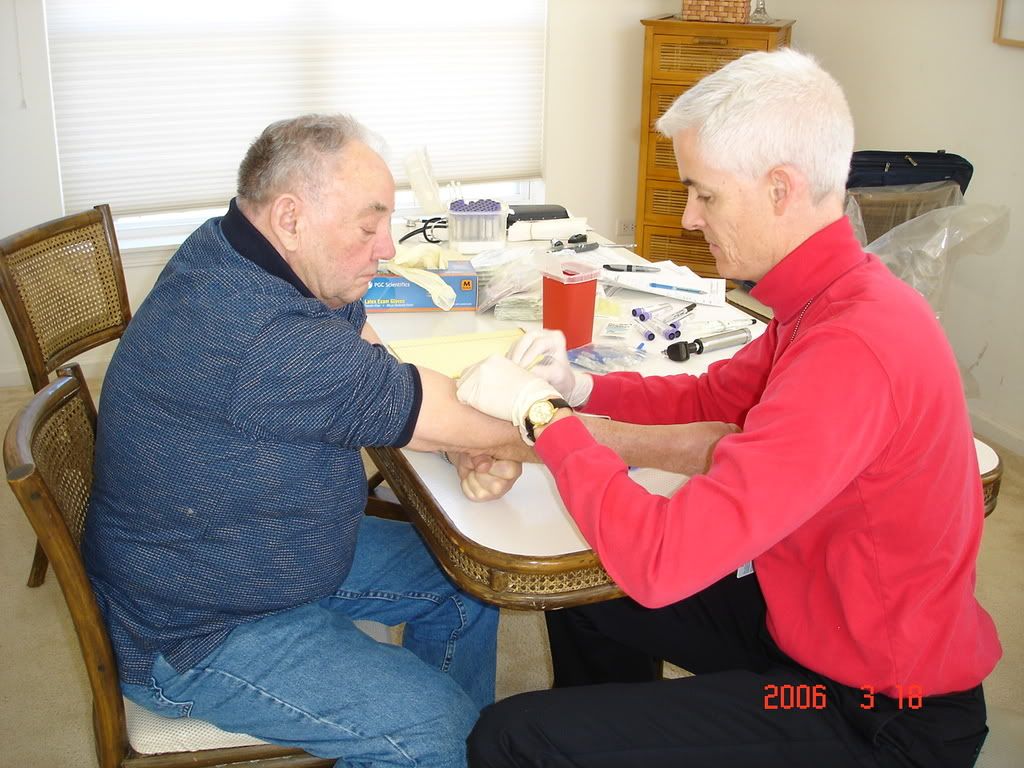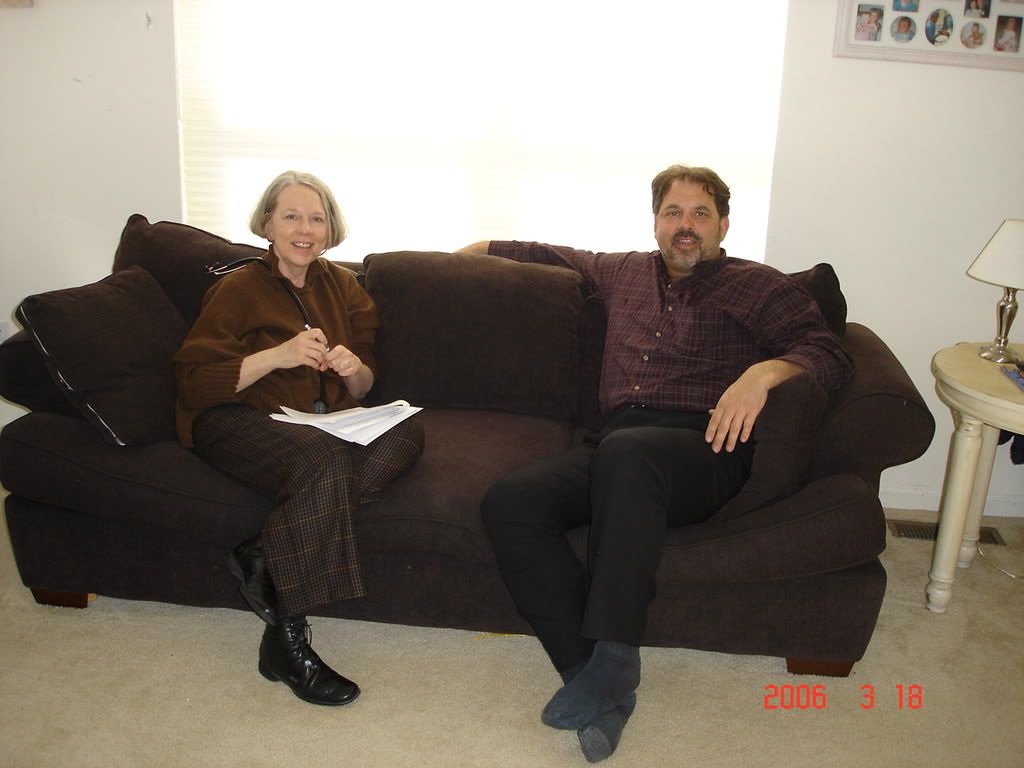
From left to right: Thomas Friedman, Penny Friedman, Dr. Andrew Griffith, Karen Putz and Anne Madeo
For many years, my family was unique when it came to stories about hearing loss. Everyone in my family, for five generations, was born with hearing in the normal range. My Mom started losing her hearing as a teen. She became deaf at the age of 27. “I was at a family BBQ and all of a sudden, I realized I couldn’t hear anything,” Mom shared. “I could see that lips were moving, but no sound was coming out.” Just like that, my Mom became deaf. Her five siblings also were deaf or hard of hearing.
I have four older siblings. My sister, Linda, was almost three years old when she fell off of a chair and hit her head on the corner of a baseboard. Later that week, my Mom noticed that she wasn’t responding to people. She began to stop talking. She was diagnosed with a profound hearing loss. My brother, Dennis, grew up with normal hearing and at the age of 36, he was hit on the head by a wooden beam at work and woke up in the hospital with severe hearing loss. My sister, Jeanie, grew up with a unilateral hearing loss and around the same age as my mom, began losing more hearing. In her mid-forties, she slipped on a rug and became profoundly deaf. My brother, Kenny, developed a moderate hearing loss in his 40’s.
I became very sick with a high fever as a child and my parents believe it was that illness which triggered my hearing loss when I was in elementary school. My first hearing aid was given to me when I was nine- but I only wore when at school. I found that it caused headaches and tinnitus and I often took it off after school and never touched it during the summer. When I was 19, I was waterskiing on my bare feet at a high speed and fell sideways into the water. For weeks, I thought I just couldn’t get the water out of my ear. I had become profoundly deaf. From that point on, hearing aids were a constant thing in my life. Years later, my brother Kenny also lost some hearing from barefooting.
Whenever I would share my family’s story about how we all became deaf and hard of hearing, people would be incredulous at the events that lead to hearing loss. “Y’all need to stop banging your heads,” one person remarked.
I knew that genetics obviously played a part, as there were so many family members sporting hearing aids. We went through the testing at Gallaudet for the Connexin gene and it came back negative.
My friend, Tina Childress, an audiologist, said to me one day, “I think your family has Large Vestibular Aqueduct Syndrome (LVAS).”
So off I went to the ENT to take a pretty picture of the inside of my head. “No, you don’t have LVAS,” said the radiologist who read the scan.
I then sent the CT scan results to Anne Madeo, a genetic researcher at the National Institute on Deafness and other Communication Disorders, part of the National Institutes of Health, to have them take a look. Anne asked some questions about our family history to construct a “pedigree”, a term that researchers use to describe a family in graph form.
“Because the inheritance of the hearing loss looked as though it was coming from women through to all of their children, but from none of the men to their children, we thought there was a very good chance that it was due to a mutation in one of the mitochondrial genes,” said Anne.
With our permission, Anne assembled a team (Andrew Griffith, Penny Friedman, and Thomas Friedman) from NIH and we all gathered at my home. The team spent the day collecting information from each family member and drew blood for the genetic testing.
We learned that we are the third family in the world identified with a mutation in the mitochondrial gene. The specific mutation is called 7510T>C. The most interesting thing to family members was learning that our specific mutation, like all mitochondrial genes, is passed through female family members. There is almost a 100% guarantee of passing the mutation from a female to the offspring, but not from the males.
What this means for my children is that my daughter will have children with this gene, but my sons will not.
People have asked me why we pursued the genetic testing in our family. There were two reasons for it. One of my nieces was hard of hearing. My other niece began to suspect that she might be losing her hearing. However, tests showed that her hearing was within normal limits. A nephew also had an episode where he thought he was losing his hearing as well. So we wanted to figure out the genetic pattern and see how the gene moved through the family. The other reason was simple: after years of questions from other people, we wanted to see if we had a name for the gene.
The results were surprising for my nieces and nephews. The niece who thought she had the gene was relieved to find out she didn’t. While she was happy to find out that she didn’t have the gene, she also felt a sense of “survivor guilt,” in knowing this information. My other niece has it and will pass it on to her children should she have kids. My nephews didn’t participate in the research, but from what we know about the gene, we know what we can conclude for each of them. One nephew has the gene, the others do not. The biggest shock came to me months later, when a cousin of mine obtained hearing aids and then mentioned that her kids were struggling in the classroom. I suddenly realized that the gene was in their family as well. Her grandmother and my mother were sisters.
“I think sometimes, on a really fundamental level, it can make you wonder who you are when you learn something like this about a specific gene mutation” said Anne. “Even though I know and try to tell people that we all carry gene mutations-they don’t define us. Yet, suddenly you’ve learned something fundamental about yourself that you didn’t know before.”
Sometimes learning about genetic results can shake up a family or cause individuals to blame one another. “That probably happens most in families that weren’t doing well already,” explained Anne. “Maybe it wasn’t a strong marriage, maybe the diagnosis in the family was really tough, maybe they’re going through an already stressful time. Not every family (at all) starts pointing fingers.”
For my own family, the information we learned was simply an interesting piece of the puzzle that has been unfolding over the years. My only beef with the researchers is that they didn’t give this gene a cool name. So in my family, we’re naming this gene in honor of my mother and grandmother: the Valle gene.
For more information on genetic research:
http://www.nidcd.nih.gov/research/scientists/griffith.asp
 Dr. Andrew Griffith with my Dad
Dr. Andrew Griffith with my Dad
 Penny Friedman and my brother, Kenny
Penny Friedman and my brother, Kenny
Comments
8 responses to “Discovering the Deaf Gene in my Family”
Hi, Karen! I like your new site.
This is a great story of genetic sleuthing. I like your discussion of how learning about a genetic trait can destabilize a shaky family situation, or just provide a piece of the puzzle in the history of a solid family.
Joel and I were watching X-men the other day and I was contemplating how most people are “mutants” in real life, because many of us carry genes for cystic fibrosis, left-handedness, deafness, bicornate uterus, etc. But if we get powers from these mutations, they are the ability to rise above the challenges that come with our genetic makeup. … You have good superpowers, Karen.
Juliets last blog post..Baha’i! And Lesotho! On the radio! Today!
I am fascintated by this process and discovery. I think it’s important to understand
Mother Earths last blog post..Summer Skillet Meals
Thanks for the kind words, Juliet– you have those superpowers too!
How interesting! We went through GT as well, and we found that we hit the lottery with both my husband and I being carriers of the Connexin 26 gene. We did have some hard days post-diagnosis, and I know both sets of our parents did too. However, like you said…we feel like it just helped us put together the puzzle of Christian’s hearing loss.
Tinas last blog post..Grande Skim Carmel Macchiato on the Bar!
I landed up at your site by a series of shall we say coincidences and am glad that I did. This is a fantastic story which needs to be told to many people. If you will permit me, I shall blog about it and give a link to this story in my blog.
I shall be grateful if you could email me separately besides responding here.
Thanks.
Ramana Rajgopauls last blog post..Self-made man!
Now, this is good reading! I found this to be a wonderful post because it was informative and just a joy to read that they discovered the mutation. It is nice to know to know the reason why a reoccurring pattern keeps happening in your family and I am glad they found one!
Abbies last blog post..HLAA Convention Recap #1
[…] blog. I’ve been able to share bits and pieces of my life, such as my family’s story of discovering a deaf gene, or how about some waterskiing memories and the fun of raising my kids. When I had the […]
Hi:
Question: Did they asked your family for Date of Birth and place of Birth?
I am being asked that by a deaf relative but I am concerned of identity theft. I thought they only need blood results.
Thanks.